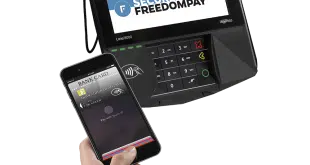Cash: the merchant’s friend or foe? Two of the nation’s largest merchants on Thursday expressed surprisingly favorable views about the ancient payment method while an executive with the Chicago Transit Authority, the nation’s second-largest public-transportation system, wished it would go away as soon as possible.
The comments came during the Federal Reserve Bank of Chicago’s 2011 Payments Conference, where Wal-Mart Stores Inc., the world’s largest retailer, and Sears Holdings Corp. gave very limited peeks at their tender trends after Federal Reserve economist Ruth Judson reported that cash usage appears to be on the rise.
At Wal-Mart, use of cash, checks, and credit cards has declined since fiscal year 2006, said John Drechny, senior director, Payment Services, with the biggest decline coming in checks. PIN-debit cards, the least expensive general-purpose cards for merchants to accept, are growing fast and are now Wal-Mart’s leading tender type. “PIN debit’s been a great growth vehicle,” say Drechny, who did not reveal volumes or precise payment shares. Regarding credit cards, he said, “The only credit we see growing is our private-label credit card business.”
Although payment network executives love to bash cash as costly to handle and prone to theft, Drechny and Susan Ehrlich, president of Sears Financial Services, have more nuanced attitudes. “Cash has always been a very efficient tender type for us,” said Ehrlich. Added Drechny: “Cash is our lowest-cost tender type.”
Neither executive revealed handling and processing costs for any of their payment methods. But they indicated that costs for cash are fairly steady, though Ehrlich did say armored-car expenses have gone up somewhat. Drechny said Wal-Mart recycles a large amount of cash it receives from customers: 18% of its PIN-debit transactions include cash back.
At Hoffman Estates, Ill.-based Sears Holding’s Kmart discount stores, customers’ cash usage fell 7% between 2006 and 2010 while checks dipped 40%. PIN-debit usage increased 37%, according to Ehrlich. PIN-debit volume in 2010 was five times that of checks, whereas it was only 50% greater in 2006. At Sears department stores, cash usage is “very steady,” off only about 5% since 2006 while check usage is down 35% and PIN-debit up 75%. Though check volumes are down, check-processing costs are way down, too, thanks to electronic alternatives that include Check 21, the law that facilitates check imaging, and a project Sears began in 2008 with processor First Data Corp., Ehrlich said.
Layaway is a fast-growing payment option at Sears Holdings, having generated $900 million in revenues for Kmart last year, according to Ehrlich. Customers completed 75% of their contracts. At Wal-Mart, electronic benefits transfer transactions currently are the fastest-growing payment type; Drechny attributes the trend to the weak economy.
Meanwhile, Eric Reese, general manager of business development at the Chicago Transit Authority, said his agency is in the midst of requesting proposals for an open-fare system in which general-purpose contactless cards would eventually replace the CTA’s current mix of two proprietary contactless cards and magnetic-stripe fare cards. The goal of the CTA, which provides about 500 million rides a year, is greater customer convenience and lower operating costs, he said.
Cash currently accounts for about 10% of the CTA’s revenues. “We’d like to get that down even lower,” Reese said. But cutting cash acceptance reduces fare options for the unbanked, he said. Some transit agencies are considering other alternatives such as general-purpose reloadable prepaid cards for those without access to conventional debit or credit card accounts as they replacing aging, proprietary fare systems. Reese wouldn’t give a specific figure, but said the CTA’s cash-handling costs are in the vicinity of the 15 cents on the dollar reported by New York’s Metropolitan Transportation Authority. “The number gets pretty high,” he said.




